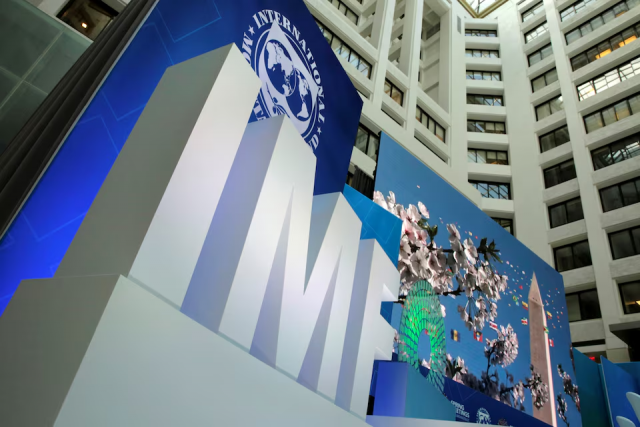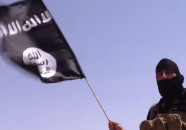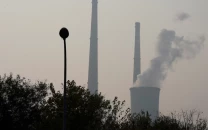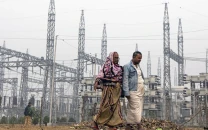IMF chief says Pakistan seeking potential follow-up loan programme
Kristalina Georgieva says Pakistan's economy performing ‘somewhat’ better with reserves now being built up

Pakistan is in discussions with the International Monetary Fund on a potential follow-up programme to its nine-month, $3 billion stand-by arrangement, IMF chief Kristalina Georgieva said on Thursday, adding that it had important issues to solve.
Georgieva told an event at the Atlantic Council think tank, that Pakistan was successfully completing its existing programme with the IMF and its economy was performing somewhat better, with reserves now being built up.
"There is a commitment to continue on this path, and the country is turning to the fund for potentially having a follow-up programme," Georgieva said, flagging issues that the struggling South Asian nation still needed to address.
Read more: IMF assured of power tariff hike
"There are very important issues to be solved in Pakistan: the tax base, how the richer part of society contributes to the economy, the way public spending is being directed and of course, creating ... a more transparent environment."
Pakistan and the IMF last month reached a staff-level agreement on the second and last review of the $3 billion stand-by arrangement, which, if cleared by the global lender's board, will release about $1.1 billion to the struggling South Asian nation. The IMF's board is expected to review the matter in late April, but no firm date has been set, a spokesperson said.
Both sides have also spoken about negotiating a longer-term bailout and continuing with necessary policy reforms to rein in deficits, build up reserves and manage soaring debt servicing.
Pakistan’s external financing requirements for the next fiscal year would hover above $25 billion, which the country plans to bridge with the help of all the multilateral and some bilateral creditors.
The Express Tribune on Tuesday reported that Finance Minister Muhammad Aurangzeb would meet with Kristalina Georgieva in Washington next week but his interactions with the United States officials might remain at a junior level.
Sources told The Express Tribune, that Aurangzeb was scheduled to meet with United States Assistant Secretary of State for South Asia Donald Lu – a fourth-tier official in the US administration. The minister might also meet with the US Deputy Under Secretary of Treasury – a third-tier official in the US administration.
Also read: Aurangzeb, World Bank discuss growth
The Pakistani delegation, comprising Finance Minister Aurangzeb, State Bank of Pakistan (SBP) Governor Jameel Ahmad, Finance Secretary Imdad Ullah Bosal and Economic Affairs Division Secretary Dr Kazim Niaz, would visit Washington from April 13 to 21 to attend World Bank-IMF Spring meetings.
Pakistan has decided to use these spring meetings as an opportunity to formally request the IMF for sending a mission to Pakistan to begin negotiations for the medium-term Extended Fund Facility (EFF).
The mission is expected to arrive Pakistan after the completion of the current programme this month.
The US holds sway over the IMF management. US Ambassador to Pakistan Donald Blome has in the recent past highlighted the role of the US government in Pak-IMF programme. The sources said that the meetings with Georgieva and the Lu might take place on the same, day but at different venues.
The level of the US assistant secretary is equal to Pakistan’s mid-tier bureaucrat. In the US hierarchy, a secretary is the counterpart of a Pakistani federal minister. The secretary is followed by deputy secretary, undersecretary and then assistant secretary.
In the past, Pakistani finance ministers used to meet, either with the US secretary or at least with the deputy secretary. But the US downgraded the level of these meetings about six years ago.
Separately, Aurangzeb would also meet with Jihad Azour, the IMF Director for Middle East and Central Asia Department, who is responsible for Pakistan-IMF relations, besides interacting with the IMF’s Fiscal Affairs Department, in which broader contours of the next IMF programme were likely to be discussed.
The finance minister would also meet with the Ajay Banga, the president of the World Bank Group, Hiroshi Matano, the executive vice president of the Multilateral Investment Guarantee Agency (MIGA) –an arm of the World Bank Group.


















COMMENTS
Comments are moderated and generally will be posted if they are on-topic and not abusive.
For more information, please see our Comments FAQ